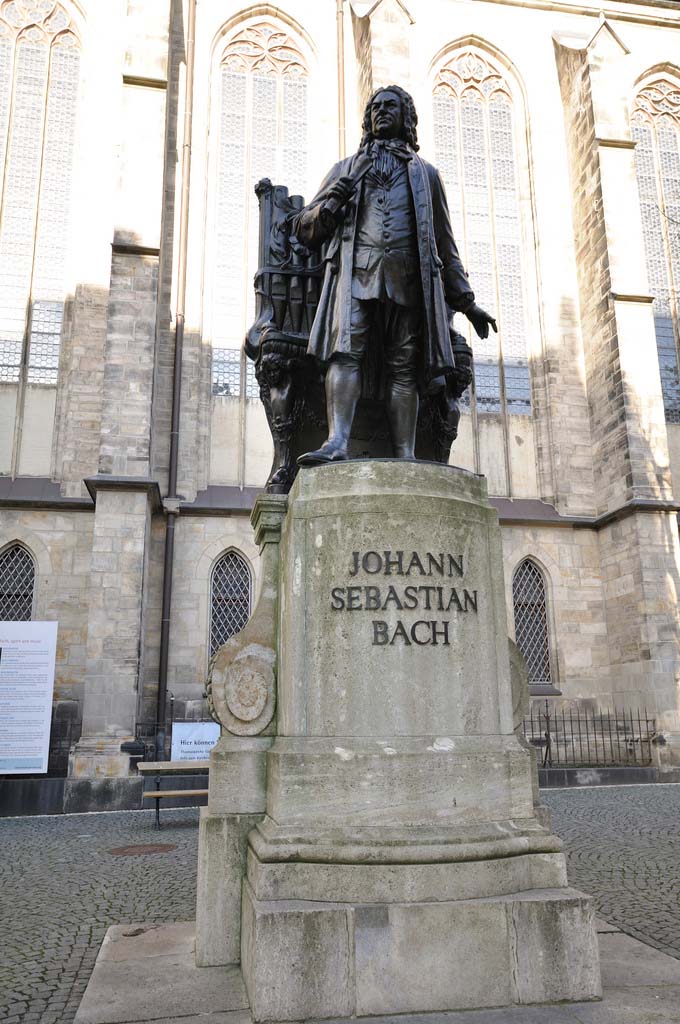Quinquagesima or Estomihi
11 February 2024 – Today is Quinquagesima or Estomihi or Shrove Sunday. Quinquagesima because we are 50 days before Easter, Estomihi refers to the opening verse of the Introit for the day, Psalm 31:3: "Esto mihi in Deum protectorem". It is the last Sunday before Lent, and Lent (like Advent) falls under Tempus Clausum, a penitential period focused on self-reflection, prayer, penance and repentance. No extravagant celebrations were allowed (like big weddings), and in Leipzig there was also no music in mass. Lucky for us Weimar did not observe that rule.
Bach has four cantatas for you, all from the Leipzig period. Philippe Herreweghe and the Collegium Vocale recorded these cantatas on one CD, so as an exception I've chosen only one performer today.
Important to note as well is that the first two cantatas, BWV 22 and BWV23, are the audition pieces Bach composed for the position of Thomas cantor in Leipzig. Originally, Leipzig offered the position to Georg Philip Telemann, at that point the most highly regarded German composer, but he turned the offer down because he got a promotion and higher wages at the court in Hamburg.
The city council then had a selection of seven other candidates (including Johann Friedrich Fasch) but they could not agree among themselves if they wanted a good teacher at the Thomasschule or a good musical director. So they opened up the position for sollications.
Two composers react: Christoph Graupner and Bach. Because Lent and Tempus Clausum was nearly there, the council had Graupner perform on the second Sunday after Epiphany and Bach three weeks later on Quinquagesima.
The council was in favour of Graupner, probably even before his audition. Graupner was a former student of the Thomasschule who studied under Schelle and Kuhnau, excelling in all required musical forms. But the council feared that he would not be released by his current employer, Landgrave Ernst Ludwig of Hesse-Darmstadt, so they wrote a letter to the Landgrave even before formally appointing Graupner to the post (and before Bach's audition), which provoked the anticipated response that indeed Graupner would not be released. Graupner had no choice but to stay in Darmstadt, but, good for him, with a better contract as a result.
Whether Bach knew any of this when he auditioned is open for speculation, but he must have realised that Graupner was formidable competition for the position.
A local newspaper printed that the Bach cantatas "have been highly praised by all those who judge such things". With Bach's good audition and Graupner not being available, the offer was extended to Bach, who accepts. He is released by the Köthen court and travels to Leipzig with his family and his belongings (which took four wagons and two carriages according to a local paper) and settles in the newly renovated apartment in the Thomasschule on May 30th. The rest is history, with a lot of magnificent music for us to enjoy.
Thanks to subscriber Robin Klupp Taylor for clarifying some of the events surrounding the appointment!
Music for today
- Jesus nahm zu sich die Zwölfe, BWV 22
(first performance 7 February 1723, Leipzig period) - Du wahrer Gott und Davids Sohn, BWV 23
(first performance 7 February 1723, Leipzig period) - Herr Jesu Christ, wahr' Mensch und Gott, BWV 127
(first performance 11 February 1725, Leipzig period) - Sehet, wir gehn hinauf gen Jerusalem, BWV 159
(first performance ? 27 February 1729, Leipzig period)
Extra information
The Netherlands Bach Society website has more information and performances of BWV 22, 23 and 159:
https://bachvereniging.nl/en/bwv/bwv-22/
https://bachvereniging.nl/en/bwv/bwv-23/
https://bachvereniging.nl/en/bwv/bwv-159/
Playlist
WBC19-Quinquagesima or Estomihi

Choose one of these streaming services to listen to this playlist:
Image of the day

The statue of Johann Sebastian Bach next to the Thomaskirche in Leipzig. When Bach came to Leipzig to audition for the position as Thomaskantor, he could not have imagined that many centuries later a statue would be erected for him outside the church.